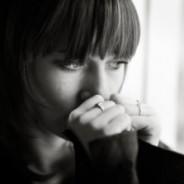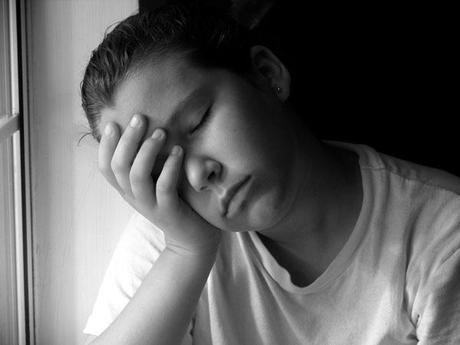
Bipolar disorder, previously known as manic depression, is a condition that affects your moods, which can swing from one extreme to another.
What is Bipolar Disorder? Bipolar disorder is mood disorder pertaining to the brain. It causes unusual shifts in the energy levels and ability of the person to carry out the day to day task. The symptoms of the bipolar disorder are different than that of the usual mood swings happening to the individual. These disorders results in the damaged relationships, poor job or school performance or even suicide. This is known as bipolar as the mood of the patient swings from one extreme of sadness to the other extreme of happiness. Bipolar disorder can be treated and the patient can lead full and productive lives. Statistics
- Bipolar is about a third as common as depression and less than half as common as Attention-Deficit Hyperactivity Disorder
- Diagnosed in about 2.6% of adults and 0-3% in youth
- 48.8% receive treatment
What are the types of bipolar disorders?
There are three types of bipolar disorders namely:
Bipolar I
In this the patient shows the severe mood swings
Bipolar II
In this the patient shows the milder form of mood swings. Cyclothymia is the mild form of the bipolar disorder.
What are the causes of the bipolar disorder?
Bipolar disorder is caused due to the genetic and environmental factors both. Neurotransmitters which are the chemicals released in the brain are responsible for the triggering of the bipolar disorder. In some cases the hormonal changes too are responsible for this disorder.
What are the symptoms of bipolar disorder?
Symptoms of bipolar disorder are characterized by alternate patterns of depression and mania. The symptoms may vary mild to severe from person to person. There are different symptoms of bipolar disorder in maniac phase and depressive phase.
Manic Phase
An overly joyful or overexcited state is called a manic episode. A person in the maniac phase may feel very energetic, creative and hyperactive. Some of the common signs of mania are increased activity and gestures, inflated self-esteem, poor temper control, poor judgment and pressured speech. The major symptoms of manic phase are:
- Extreme optimism
- Agitation
- Euphoria
- Inflated self-esteem
- Rapid speech
- Aggressive behavior
- Racing thoughts
- Risky behavior
- Spending sprees
- Increased physical activity
- Increased sexual drive
- Increased drive to perform or achieve goals
- Decreased need for sleep
- Inability to concentrate
- Tendency to be easily distracted
- Drug abuse
Depressive Phase in Bipolar Disorder
An extremely sad or hopeless state is called a depressive episode. Some people may experience more episodes of depressive phase than maniac phase. Some of the general signs of depression are excessive worry, sadness, crying spells and social withdrawal. Some major symptoms of depressive phase are as follows:
- Hopelessness
- Sadness
- Sleep problems
- Anxiety
- Irritability
- Guilt
- Appetite problems
- Fatigue
- Problems in concentration
- Loss of interest in daily activities
- Chronic pain due to unknown reason
Treatments
Bipolar disorder can be best treated by lessening the mood swings of the patient. Following are several aids available while the patient is on the treatment.
Medication
Medications have the side effects while patient respond to the medications in different ways. Also the medications should be taken only on the doctor’s prescription and they should not be stopped in between as it can prove dangerous and can make the bipolar disorder symptoms worse.
Psychotherapy
Psychotherapy usually consisting of talking and counseling helps the patients in many ways. Patient can learn to manage their behavior and responses to the other people in their lives. There are various types of psychotherapies available which can show positive results. They are namely:
Cognitive behavioral therapy (CBT)
Patients learn to pay attention to automatic positive thoughts as potential triggers for hypomania or mania
Dialectical behavior therapy (DBT)
Patient learn to improve their emotion regulation
Psycho educational therapy
In this therapy the patient learn to understand triggers and ways of managing the illness
Family-focused therapy
Patients improve communication and reduce intense emotional conflict
Interpersonal social rhythm therapy
This therapy emphasizes on regular sleep and activity patterns. Psychotherapy has a lot of promise as a way of preventing progression of bipolar disorder, delaying relapse and improving functioning in between episodes.

Bipolar Disorder
Other treatments
Shock therapy
Some people do not get better with medication and therapy. These people may try “electroconvulsive therapy,” or ECT. This is sometimes called “shock” therapy. ECT provides a quick “shock” that can sometimes correct problems in the brain.
Herbal therapy
Sometimes people take herbal and natural supplements, such as omega-3 fatty acids. Talk to your doctor before taking any supplement. Scientists aren’t sure how these products affect people with bipolar disorder.
Conclusion
Many talented and productive people have successfully dealt with bipolar disorder, so a goal of treatment should not just be symptom reduction, but helping the person to make the most of their gifts and abilities.
